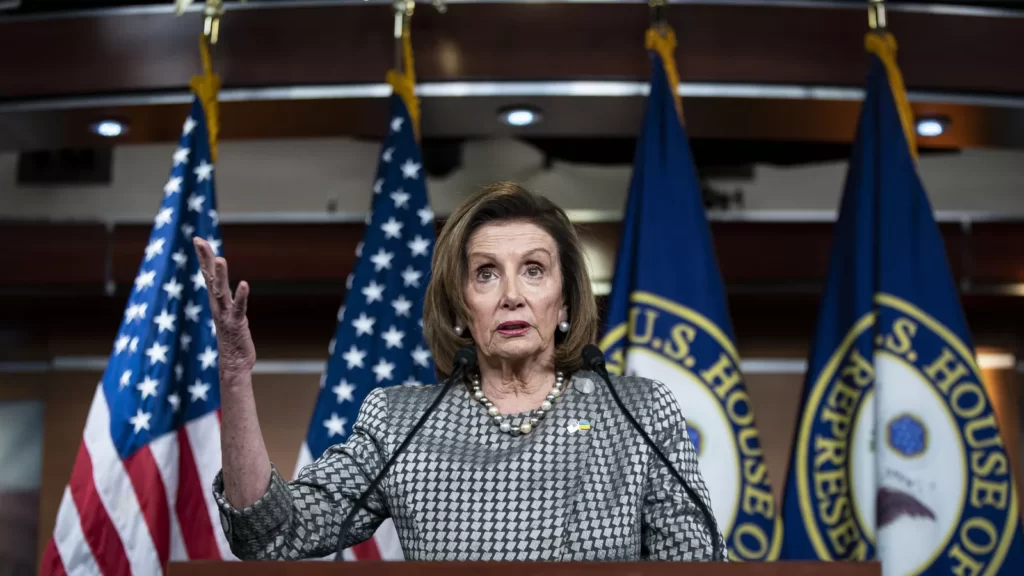Andrew Solender
The House delayed a vote on legislation to sanction Russia after the White House intervened to block a key provision of the bill — roiling lawmakers from both parties, Axios has learned.
Why it matters: Congress has consistently struggled to come together in its efforts to place economic pressure on Russia to try to force an end to its invasion of Ukraine.
- Senators in both parties failed to strike a deal on a sanctions bill in February aimed at deterring the invasion, instead opting for a joint statement.
Driving the news: House Speaker Nancy Pelosi said in a letter Tuesday morning that the House would vote on sanctions later that day but ultimately scheduled the vote for Wednesday.
- Leadership aides in both parties confirmed to Axios that GOP leadership wouldn’t commit to passing it through suspension, an expedited process requiring bills to get a two-thirds vote.
- The vote on Wednesday will only require a simple majority.
Between the lines: A bipartisan deal on sanctions between key committee chairs was announced on Monday, but the White House pressed top Democrats to defang that legislation, a source familiar with the matter told Axios.
- Specifically, the administration wanted a provision stripped out that would revoke permanent normal trade relations (PNTR) with Russia and Belarus to give the U.S. broader breadth to place tariffs on imports from the two countries.
- Pelosi laid out a new bill on Tuesday that replaces that measure with a provision extending the definition of human rights violations under the Magnitsky Act to include Russia’s actions in Ukraine, opening the door for more sanctions.
- At the same time, the White House undercut a key component of the legislation banning Russian oil imports by taking that action itself on Tuesday.
What they’re saying: Rep. Kevin Brady (R-Texas), the top Republican on the House Ways and Means Committee, which struck the bipartisan deal, told Axios the GOP feels the bill has lost much of its strength.
- He specified that he was personally “very disappointed” PNTR was dropped— though he said he’s still reviewing the bill.
- “The [White House] didn’t interact with Republicans, at least in the House, on this,” Brady added.
- Rep. Michael McCaul (R-Texas), the top Republican on the House Foreign Affairs Committee, also pointed to longstanding GOP concerns that the Magnitsky Act’s definitions of human rights violations are “overly broad.”
Even some Democrats weren’t happy with the changes made between the bipartisan deal and the leadership bill.
- “We want to go further,” said Rep. Earl Blumenauer (D-Ore.)
- Ways and Means Chair Richard Neal (D-Mass.) told Axios he‘s “committed to the issue of PNTR.”
The bottom line: Republicans are probably still going to vote for the sanctions in large numbers, but the White House has aggravated members in both parties.
- “I think you’re going to see the bill pass [with a broad bipartisan majority],” McCaul said.
- “Without question, this bill would have passed by now if it had remained a bipartisan agreement that had been struck by both chambers,” a GOP congressional aide told Axios.

Source: axios.com

